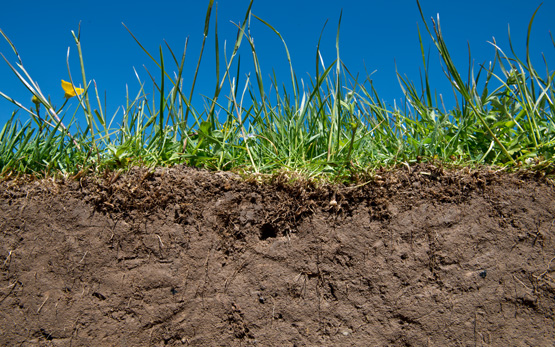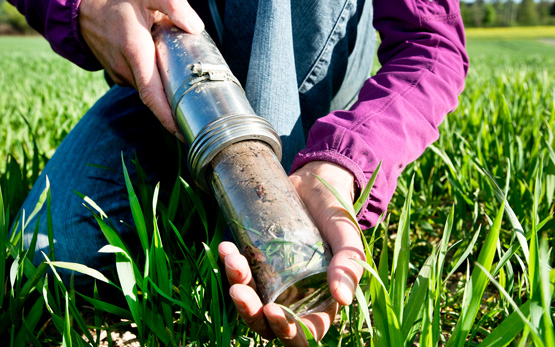In modern agriculture, productivity is achieved by frequent use of mineral fertilisers and synthetic plant-protection products. The frequency and extent of these inputs increasingly lead to concerns regarding their harmful impact on humans and the environment. Consequently, sustainable solutions are needed which will continue to make high yields possible even with reduced use of fertilisers and plant-protection products. In this context, microbial communities (‘microbiomes’) and the ecosystem services they provide could be optimised so as to have a more positive impact on host plants and the environment. A deeper understanding of the effect of management on the composition of the microbial communities (‘microbiota’) and the influence of the latter on important soil processes is essential for finding sustainable solutions for future cropping systems.


In this thematic field, we are interested in how not only cropping systems (e.g. conventional or organic farming) but also specific agricultural practices (for example, the use of plant-protection products) influence the composition and structure of microbial soil and root communities. In addition, we aim to better understand how microbiomes influence important soil functions such as nutrient and carbon cycling, and which microbes assume a key role in this context (‘keystone taxa’).
Contact





